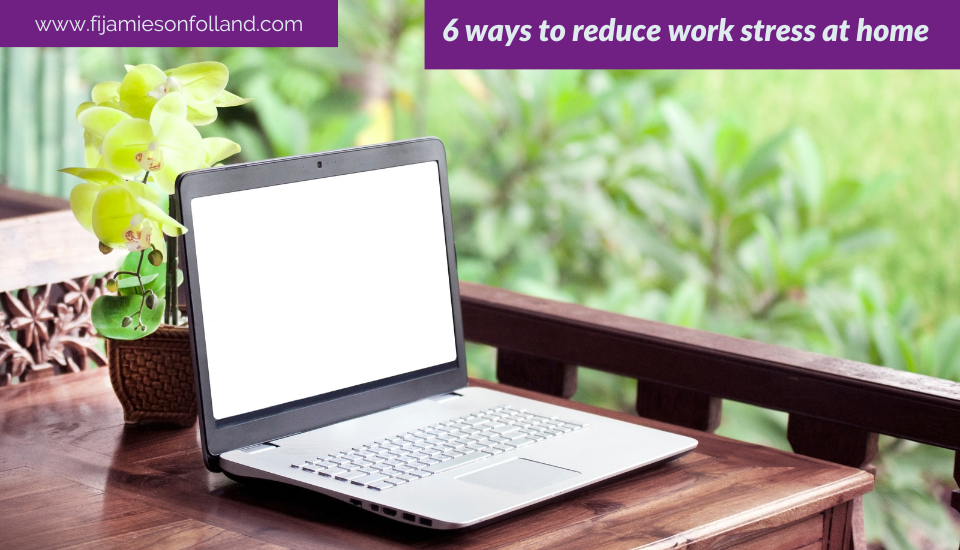Working from home has become a popular choice for many of us in recent times. With the rise of technology and increase in remote jobs, more and more people are opting to work from the comfort of home. But does working from home really reduce our stress?
In this blog post, we’ll examine the pros and cons of working from home, and discuss whether it can actually reduce our stress. We’ll explore how working from home can affect our mental health and productivity, and explore the benefits and drawbacks. Ideally, this will help you to make an informed decision on whether working from home is the right choice for you.
Does working from home really reduce stress?
The concept of working from home has become increasingly popular over the last few years, as more and more people have adopted it as a way to reduce stress and increase productivity.
Whilst it’s true that working from home can offer many benefits, it’s important to understand the pros and cons of this approach in order to figure out if it’s a fit for you.
The main benefit of working from home is that it can reduce our stress.
Many people feel that working from home allows them to have more control over their work environment and their schedule, leading to increased productivity and less stress. It can also help to reduce commuting time and the associated costs, allowing us to focus on the task at hand.
Additionally, it can provide more flexibility in terms of location and working hours, allowing us to fit their work into our lives more easily.
However, there are some potential drawbacks to working from home, and it’s better to know of these up front.
For example, those of us who are especially sociable can feel isolated from colleagues and other professionals if working from home, leading to decreased motivation and productivity. Plus working from home can be distracting, as we may find it difficult to focus on the task at hand when there are other things going on around us in the house.
Finally, it’s important to remember that working from home can be difficult to manage, especially if we’re hit and miss with it.
To find out whether working from home really reduces stress, it’s important to consider how it can affect our mental health 1 and productivity. Studies have found that working from home can lead to increased creativity and productivity, as well as improved mental health. One study by the University of California, San Diego found that working from home was associated with improved mental health and less stress.
Also a survey of over 8,000 remote workers found that those who worked remotely reported higher levels of job satisfaction and felt less stressed than those who worked in a traditional office. 2
So, whilst a home office can reduce stress, it’s worth remembering that it can also be distracting and isolating. Plus it makes a big difference when we make sure we have the resources and support to get the job done.
Finally, it’s possible for a home office to impact on our family life, so it’s vital to consider how this might affect our relationships.
It seems clear that working from home can reduce our stress and increase productivity, although it’s a key step to take into account the potential drawbacks and make sure that our working environment is properly managed. Plus it pays to make sure we have the resources and support we need to be productive.
Sure – working from home can be an effective way to reduce our stress, however, it’s important to consider all the pros and cons before making a personal decision.
Is a part time, home -based business a good option?
Working from home part-time on our own business can be a great way to transition to working from home full-time and reduce our stress. Having our own business can provide the flexibility to work from home and manage our own schedule, allowing us to work when and where it suits us best.
Additionally, having our own business can protect us financially, as it can provide a steady income stream and help to cover any unexpected costs that may happen. A great additional bonus is the valuable personal development opportunities it can bring.
Working from home part-time on our own business can allow us to develop new skills and gain experience in areas such as marketing, customer service, and project management. This can be especially beneficial if we’re looking to transition to working from home full time, as it can help us to better prepare for the transition.
Also having our own business can be a great way to future-proof our financial health. This is especially true if our business is successful, as it can provide a steady stream of income for ourselves and our families.
Additionally, having our own part-time business can give us the freedom to pursue our passions and to create something that we’re proud of, whilst providing a valuable stepping stone for working from home full time and reducing our stress. 3
It can provide us with financial security, valuable personal development opportunities, and the ability to create something of our own. All this whilst providing a better life for the future and a viable way to pursue our passions. If you’re considering running your own business from home and you’re wanting to explore possible options that might be the best fit for you, it’s worth connecting with Chris for a brief chat as he’s had a huge amount of experience in this area and can be a valuable sounding-board.
Now that we’re working from home what are some ways to reduce work stress at home?
Working from home has become part of the norm for many over the past few years as technology advances, more and more jobs can be done remotely. Whilst this new way of work can be liberating, it can also bring with it its own set of stressors.
Here are some tips for how to reduce work stress at home –
1. Schedule breaks – working from home can be overwhelming. To prevent this, scheduling regular breaks throughout the day and sticking to them can be a game-changer. This can give us a chance to step away from work and relax for a bit.
2. Create a dedicated workspace – which allows our productivity. It’s vital to find a spot in our home that’s quiet and free from distractions, for example, a separate room or a corner of our living room that’s comfortable and organised.
3. Take time for yourself – this path can be isolating, so it’s important to take time for ourselves. Doing something every day that’s just for you, and taking the time to enjoy it – for example taking a walk outside, reading a book, or taking a bath can make all the difference.
4. Practice self-care – taking care of ourselves is essential when it comes to reducing our stress. Making sure we’re eating healthy meals and drinking water, exercising regularly, and getting enough sleep can seem like small steps although they can help reduce the stress of working from home.
5. Connect with colleagues – carving out time on a regular basis to be with our colleagues can help offset a sense of disconnection. This could be anything from a quick chat over coffee to a longer video call, which can also boost our motivation.
6. Set boundaries – which can make all the difference in separating our work from our personal life. Deciding when to start and end our workday and sticking to it helps our peace of mind when taking time off.
By following these tips, we can reduce the stress of working from home and make sure we’re productive and happy. The game changers include taking time for ourselves, setting boundaries, and connecting with others.
Following these steps can mean you can make working from home work for you.
Fi Jamieson-Folland D.O., I.N.H.C., is The LifeStyle Aligner. She’s an experienced practitioner since 1992 in Europe, Asia and New Zealand as a qualified Osteopath, Integrative Nutrition Health Coach, speaker, educator, writer, certified raw vegan gluten-free chef, and Health Brand Ambassador.

Facebook Instagram LinkedIn Pinterest YouTube
References –
1. Broussard, J., & Rupnow, K. (2020). The Impact of Working From Home on Stress and Mental Health – A Systematic Review. International Journal of Environmental Research and Public Health, 17(1). doi -10.3390/ijerph17010297
2. Pulkkinen, L., & Rantanen, J. (2020). Job Satisfaction and Stress Amongst Remote Workers – A Cross-Sectional Survey of 8,054 Remote Workers. Journal of Occupational Health Psychology, 25(4), 585–598. doi -10.1037/ocp0000270
3. University of California, San Diego. (2020). Working From Home – Stress and Mental Health Benefits. Retrieved from https -//medschool.ucsd.edu/som/psychiatry/research/stress -and -mental -health/working -from -home.html

